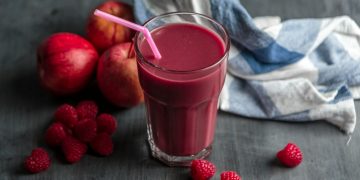Importance of food in our everyday and healthy restaurants near me: Nutrition plays a significant role in our everyday lives. Food or fluids affect our body and health since every food or liquid has special nutrition essential to our physical and mental growth. A precise nutritional level is needed for our bodies. Therefore, we should know what food we have to take, how much, and what kind of nutrition a specific item has.
Whenever we take any food or nourishing fluid, our bodies digest or absorb from these foods or nourishing fluid simple but essential minerals, vitamins, fats, proteins, carbohydrates, fats and water and transform it into the bloodstream and energy, which help our bodies grow and maintain their health.
The nutritional value is more vital for the health of every person. Whenever we ingest, meals or beverages affect both our body and our health. It is therefore very crucial that we are more conscious of importance of food or liquids in our daily lives. Many diseases occur merely because of the wrong diet. Some diets can induce disease themselves or change the course of a known condition, such as diabetes, heart disease or renal disease according to buildyourbody.org.
Why is nutrition vital to us?
As we know, importance of food and water are needed to construct and keep our bodies healthy. All healthy foods and liquids contain crucial nutrients such as proteins, carbohydrates, lipids, vitamins, minerals and water. These serve a different role in keeping our bodies healthy and building new cells into our bodies.
These are the main foods and their role in our bodies:
Protein:
It also contributes to producing hormones and enzymes that perform several tasks, such as metabolism and sexual development in the human body. Several protein kinds serve a diverse purpose in the body. For example, collagen is a protein that gives your hair and skin strength, flexibility and composition. Some excellent protein sources are lentils, fatty dairies, tofu, almonds, seeds, peas, tempeh. Some typical meals like whole grain bread, pumpkins, maize and pasta also include protein. Protein. Soya protein is the most important and most potent protein and equals all proteins of animal origin.
Carbohydrates:
Carbohydrates provide energy for humans. This is a good energy source for the body since carbs are easier to convert into glucose. It assists our body to supply power for cellular component creation. Carbohydrates consist of three components of plant-formed carbon, hydrogen and oxygen. There are four significant forms of carbs – sugar, starches, fibre and gum. If ingested frequently, carbohydrates do not induce growth in weight, except in other dietary groups. Two types of carbohydrates are available – complex and simple. Carbohydrate efficiency can lead to ketone generation in the body and can result in ketosis. The good examples include bread, Pommes of papas, spaghetti, soda, chips, sweets, cookies, puddings, cakes, sugar, bananas etc.
Fats:
Fat gives us additional energy. It is a nutrient, and our body needs a certain quantity of fat. It doesn’t make us obese every time. It helps to isolate our bodies by protecting us from rapid temperature swings and protecting our essential bodies. Fats consist of a large number of chemicals that are soluble and insoluble in water in organic solvents. Fats supply nine calories per gram. Fatty acids are created when dietary fat is metabolized. It is also vital to regulating healthy skin and blood pressure.
Two types of fats exist Saturated and unsaturated (solid at room temperature) (liquid at room temperature). One of the few fatty acids that the body cannot manufacture is achieving a sufficient linoleic acid level. Every adult needs a tablespoon of unsaturated fat every day. Saturated fats exist predominantly in milk products such as butter, cream, cheese and sure chocolates. Soja, sunflower and maize oils are sources of unsaturated fats.
Vitamins:
A vitamin is an organic molecule that regulates the processes of our body and is vital to ensure the healthy functioning of our body. The term vitamin was coined from the combination of vitamin and amine. A chemical compound is now referred to as a vitamin. Our body needs vitamins to grow and develop normally. There are 13 vitamins that our body needs. Some include A, B, C, D, E, K, B-6 and B-12. All these vitamins from foods, whatever we ingest, in our daily lives. Our body can also make D and K vitamins.
Each vitamin performs unique tasks. Specific low vitamin levels induce deficiency illness. For instance, it can develop rickets if we don’t obtain enough vitamin D. Vitamin ‘A’ deficiency may cause night blindness.

























